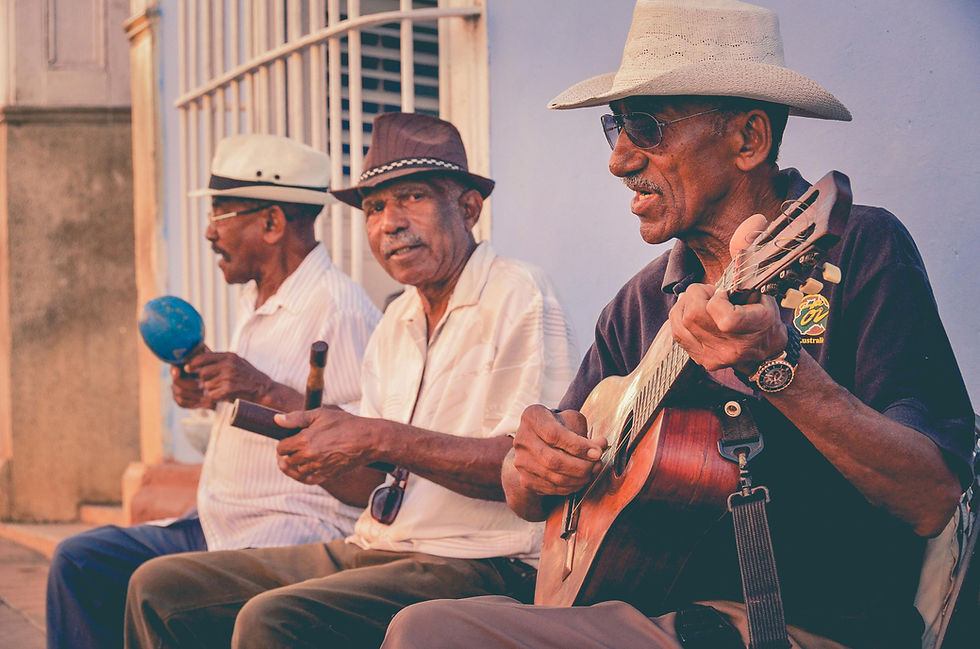Life and Liberty for Haiti
- Anna Galaktionov
- Oct 20, 2021
- 3 min read
Updated: Jan 2, 2024
By Liz Calvo

Haitians have sought refuge by the thousands at the southern U.S. border after this summer’s 7.2-magnitude earthquake and the assassination of their president Jovenel Moïse left the island nation destabilized.
With the rising distrust in foreign aid, Haitians are struggling to escape by traveling on makeshift rafts, on foot, and by bus to Mexico.
From Ciudad Acuna in Mexico to sprawling camps across the border in Del Rio, Texas, the mass media has shown the threats facing vulnerable groups of Haitians. Footage of border guards on horseback charging at migrants near a riverside camp in Texas went viral on social media.
The Del Rio International Bridge was a temporary home to more than 15,000 migrants, though Texas Governor Greg Abbott said the number reached as high as 30,000 Haitians since Sept. 17. Many had traveled from as far south as Chile, hoping to apply for asylum in the U.S.
The port of entry was temporarily closed but is now reopening after clearing thousands of migrants from the camp below the international bridge crossing.
Samuel Vilmeau, an exercise physiology major and native Haitian, felt embarrassed about what happened on the border.
“Watching island news and Haitians talk about how they felt like slaves...there is no place on this planet Haitians aren’t disrespected and humiliated,” he said.
On Sept. 20, White House spokeswoman Jen Psaki said the behavior of border guards was not “acceptable or appropriate.” Vilmeau, however, expected his fellow Haitians to have to flee the country after the summer’s events came to a fever pitch.
On July 7, Haiti President Jovenel Moïse was shot and killed in his home in the Pelerin 5 neighborhood in Port-au-Prince. The First Lady, Martine Moïse, was also shot, but survived.
“The people in Haiti would be forced to leave the country or worse. I speak for many when I say this was devastating, but at the same time, we expected the worst-case scenario,” he said.
According to Haitian police, Haitian-born doctor Christian Emmanuel Sanon, ordered the assassination as part of a plot to become president.
Haitian Police Chief Leon Charles alleged that Sanon hired the mercenaries through a Miami-based company called CTU Security LLC, run by Venezuelan national Tony Intriago.
“Mr. Sanon was the first person that one of the Colombian suspects had called when police surrounded them,” said Charles.
According to Charles, the 63-year-old doctor, who resides in Florida, arrived in Haiti on a private jet in early June with “political motives.” Charles suggests that the Colombians might have been duped by Sanon.
In total, 44 people have been arrested in connection with the assassination of Moïse, while several others are being sought out.

Then, on Aug. 14, a 7.2-magnitude earthquake struck the Tiburon Peninsula. The earthquake was so strong that it was felt in Jamaica where the intensity of the earthquake reached Modified Mercalli Intensity (MMI) four in Kingston.
As of Sept. 7, at least 2,248 people were confirmed dead and 12,000 injured. These figures make this the deadliest earthquake and natural disaster of 2021. It was the worst disaster to strike Haiti since 2010, when there was a magnitude 7.0 earthquake.
Vilmeau was devastated by the earthquake. For him, it is hard being so far away from family members who are suffering.
“It was overwhelming,” said Vilmeau. “When the videos started circulating online, I couldn’t hold myself together, knowing that I have family in that area, and it wasn’t very far from my hometown.”
According to Vilmeau, his family is also attempting to come to the U.S. in order to escape the situation in Haiti.
“When it comes to tragedies like this, you expect contamination of water and resources and a rise in disease,” said Vilmeau.
In Haiti, more than 60,700 homes were destroyed, and 76,100 others were damaged, according to the Haitian Civil Protection Agency. The United Nations Children's Fund (UNICEF) estimates that more than half a million children were affected. Waterborne diseases like cholera have re-emerged in the southwest of Haiti.
The United States Agency for International Development (USAID) provided $32 million in foreign aid to Haiti for reconstruction efforts.
Vilmeau believes there is more that can be done to help Haiti but there is a distrust in foreign aid in the Haitian community.
“There was advertising of Haiti as a cursed country by the United States and other countries. It feels dehumanizing,” said Vilmeau.
Haitians continue to experience destress. As of Sept. 20, the United States is denying asylum claims to Haitians and deporting them back to Haiti under a U.S. policy, known as Title 42, which singles out asylum seekers crossing into the U.S.
Despite being in crisis, Vilmeau believes in the strength of Haiti.
“My fellow Ayitian are strong people, and we've been through a lot historically, and one day we will flourish those mountains and bring the wealth and peace our country rightfully deserves.”







Comments